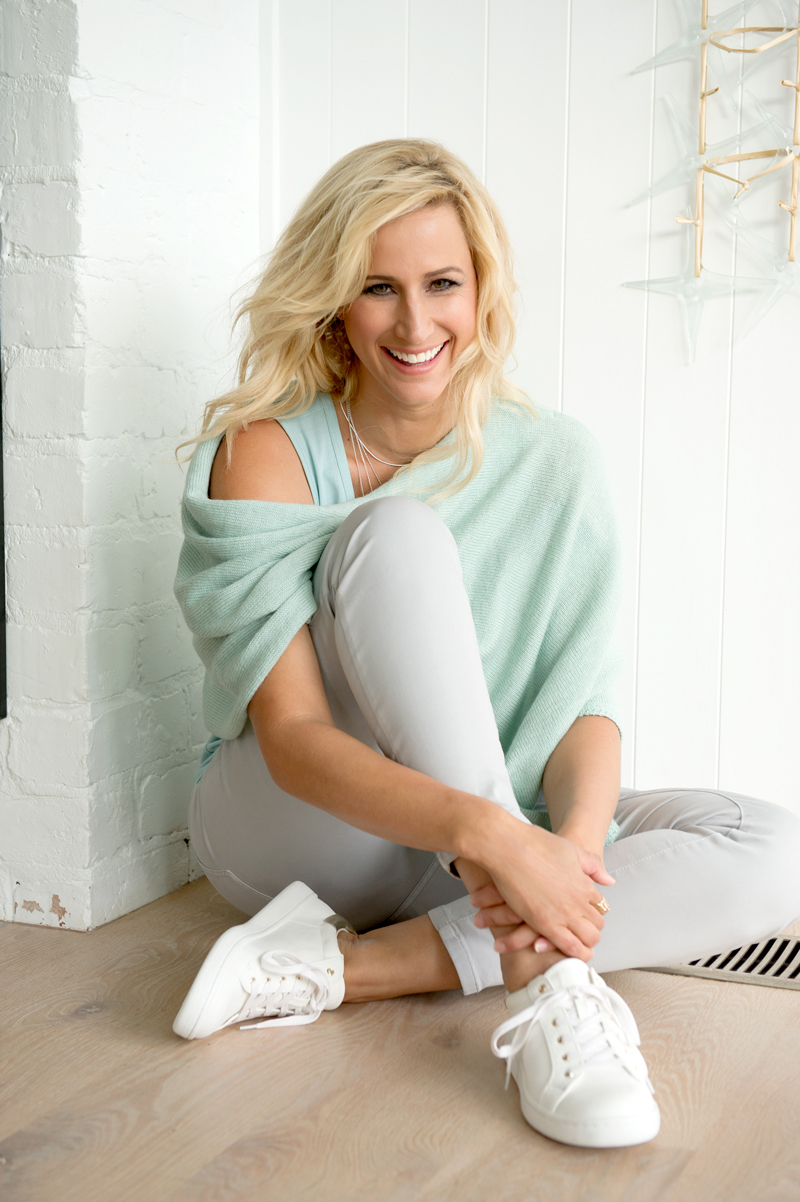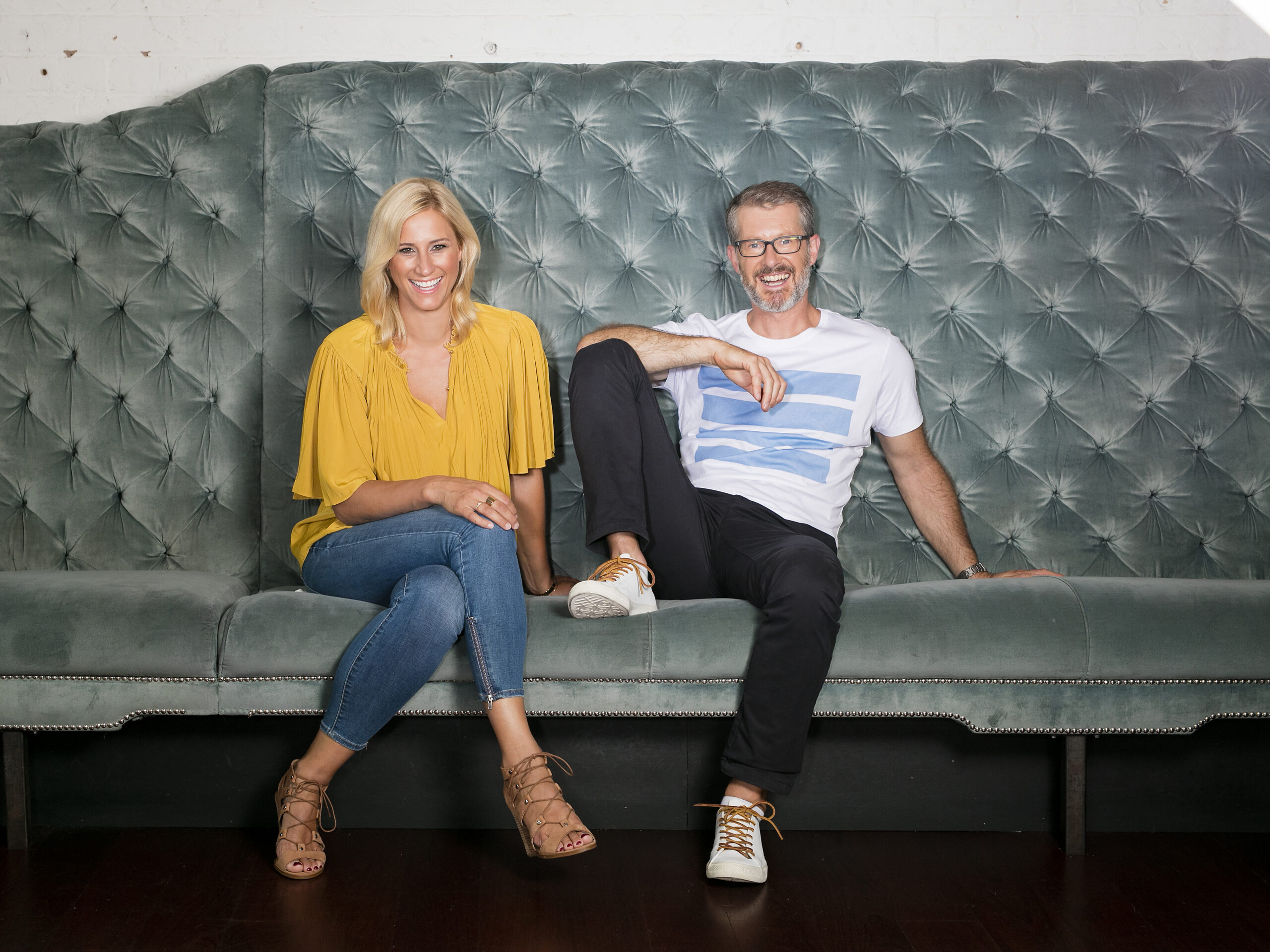Cooking for a family keeps TV presenter Pippa Wetzell busy enough; keeping the food healthy, and helping her kids grow up with a good relationship to food adds another layer to the challenge.
But the mum-of-three has a positive attitude and a handful of tricks to beat the daily grind of cooking for five…
If you find yourself at Pippa Wetzell’s house first thing in the morning it might seem as if the place is in a state of total chaos as she whips round the kitchen preparing packed lunches and different breakfasts for each of her three kids.

“I’m like a short-order cook trying to feed everyone,” laughs the TV presenter. “But they all have specific things they like eating and get hungry at different times.”
Making sure her children – Brodie, nine; Cameron, seven; and Taj, five – have a good start to the day food-wise is important to Wetzell and, armed with what she’s learned while presenting TV One’s consumer show Fair Go, she avoids a lot of the quick-and-easy breakfast options, preferring to cook up omelettes and porridge instead.
“We’ve had a huge focus on sugar on the show this year and I’m still a bit astonished,” explains the 39-year-old. “A lot of the breakfast cereals you assume are quite healthy have an amazing amount of sugar in them. And then there are those little pottles of yoghurt, orange juice and muesli bars; there may be good stuff in them but there is also a lot of bad stuff.
“It’s not that I mind my kids having sugary treats like ice cream, cakes and biscuits now and then,” she adds. “There are no bans on anything really. What I try to avoid is junky food disguised as healthy food. I’d much rather sugar came in a recognisable form.”
New Zealanders consume on average 37 teaspoons of sugar a day and it’s contributing to our obesity epidemic – we have one of the highest rates of overweight people in the world, according to a recent study published in UK medical journal The Lancet.
It’s also rotting our children’s teeth; 5000 of them a year have dental surgery under anaesthetic and it’s the number one reason Kiwi kids are admitted to hospital.
The World Health Organisation (WHO) has called on countries to reduce sugar intake to six teaspoons a day. It’s not referring to the natural sugars found in milk, whole fruits and vegetables but to those added to foods and drinks by manufacturers and those naturally present in honey, syrups, fruit juices and fruit concentrates.
Calls for a tax on fizzy drinks have met with a mixed response. These beverages are in the firing line because they are heavily marketed and young people tend to consume a lot of them.
But as Wetzell points out, it’s those sneaky hidden sugars we really need to watch out for – there are around 10 teaspoons in a glass of apple juice, which on the face of it appears to be a healthier alternative.
It’s a challenge for any parent to teach their kids how to eat well without creating issues around food, guilt and body image.
Wetzell doesn’t want her children thinking of any food as ‘bad’ – although she knows they’re likely to get that message from other people eventually.

Wetzell with Gordon Harcourt, her recently departed co-host of consumer affairs show Fair Go.
“I’m really mindful of the relationship kids have with food. I’d like them to enjoy it and don’t want them to overthink it. So I’m trying to fill their heads with the idea they should choose foods that will make them healthy and strong so they can run faster and jump higher and have the energy to do all the cool things they want to do,” she explains.
“They don’t have to finish everything on their plate but they do have to eat all their vegetables.”
Wetzell has become quite crafty at making sure her family gets their five-plus a day. Aware they are always ravenous after school she’ll turn up to collect them toting a big container of raw chopped veges they can snack on in the car on the way home.
“I’ve always been slightly lazy and usually they get their vegetables raw,” she admits. “I don’t feel too bad about it as I think it’s a great way to eat them.”
During the week, if the children have activities that push into the evening she’ll often feed them dinner at 3.30pm then another snack later on, waiting until her husband Torrin gets home before eating herself.
“I’d love for us all to eat together as I think it’s hugely important but unfortunately we’re not in a position to, except on the weekends.”
A regular treat is pancakes on Sunday mornings, and the family has developed a quirky tradition around them.
“It started a few years ago when we had only one pancake left,” explains Wetzell.
“Torrin cut it into thirds and in doing so created a netball court out of it. Now the last pancake always has to be turned into a netball court. It’s become quite elaborate; we get little skewers and make hoops.”

Wetzell wouldn’t claim to be a wonderful cook and says her mother Carol has never been especially interested in it. Most of her food memories are centred on her father, Clem.
“He loves cooking and loves the value of a meal – feeding people, socialising, all those things,” she says. “Dad is part Samoan so was brought up eating dishes like chop suey and oka [a raw fish dish] and I guess that shaped his tastes. He travelled a lot and would come back and want curries rather than traditional Kiwi fare. We were eating sashimi with him when no one else was and we did sharing plates when they didn’t exist, with forks being handed up and down the table.
“He also loved going out for breakfast. In those days, in the 1980s, the only places that served it were hotels so he’d take us to the Steam Biscuit Factory at the Sheraton [now Langham]. And we’d go for Friday night dinner to places like Tony’s Steakhouse.”
As a result Wetzell learned early on to be adventurous in her eating and nowadays enjoys pretty much everything.
“I don’t have a hugely sweet tooth, although I probably should avoid being near an open packet of liquorice,” she says.
“What I really love is things like cheeses and seafood; if I had to choose my last supper, it would be a pretty elaborate seafood platter. I’m okay with most offal except tongue, which I still feel a bit weird about. And I’m not a fan of parsnips for some reason.”

Wetzell still loves to dine out and is keen on Thai and Vietnamese food; however, these days with a family, the couple are more likely to have friends and family over to share a meal at their place.
“I love the impromptu occasions when Torrin puts something on the barbecue and I magic up a salad and do some garlic bread; just simple stuff. And in winter I love a big, hearty casserole on a cold day. I’ve really got into my slow cooker.”
While Wetzell enjoys cooking up something special when she has time to spend in the kitchen, she admits to not always loving the daily grind of feeding the family.
She describes herself as someone who veers between viewing food as simply fuel and, at other times, really enjoying and savouring it.
“I don’t need to have an elaborate meal every day but I do have to feed myself properly,” she says. “I’m a big eater; I need to keep the energy levels up.”
Changing the system
The FDA (US Food and Drug Administration) has recently announced changes to nutrition information on food labels in America with the key change being how sugar is listed. To avoid confusion between natural sugar and added sugar the new labels will have added sugars stated separately.
That will allow consumers to decipher exactly how much added sugar is in their food – something that has previously been hidden among total sugar amounts. This will be beneficial for products like yoghurt, where some of the sugar is naturally occurring, like lactose, and some is added sugar. Another change is that added sugar will now be shown in grams as well as percentage of daily value.
This is an important change as the WHO (World Health Organisation) says we should only get 10 per cent of our daily energy from added sugar, but until now it has been difficult to work out how that equates to the food we eat.
Now, if you consume something like a fizzy drink, the total sugar might read 39g; however, you’ll also see that this represents around 78 per cent of your daily added sugar.
Words: Nicky Pellegrino


